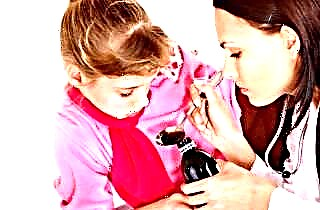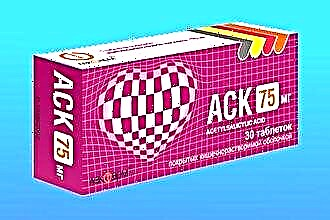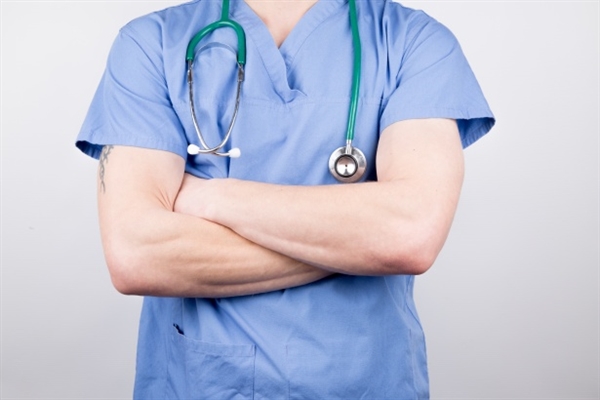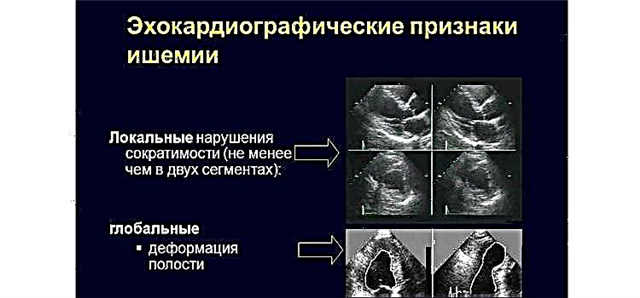The first thing that mothers do as soon as the baby coughs is to restrict his mobility, and often they also put him to bed. Of course, in some cases it should be so. But first, it would be nice to figure out why the child is coughing. Perhaps his cough is not pathological, but physiological. Or it is caused by a chronic illness that has nothing to do with the respiratory system. Then giving up walking is not only pointless, but also harmful.
What is a cough
 Whether it is possible to walk with a child when coughing depends 100% on the reasons that caused it. All of them can be easily divided into several groups:
Whether it is possible to walk with a child when coughing depends 100% on the reasons that caused it. All of them can be easily divided into several groups:
- Physiological. A cough is a reflex act that helps a child clear dust, mucus, and other debris from the upper respiratory tract. Most often it happens in babies, especially if the air in the room is too dry. It is not accompanied by other symptoms usual for a cough, and is not paroxysmal. Walking with such a cough is possible and necessary.
- Allergy. When exposed to any allergen, the mucous membranes swell, and since the larynx of the larynx is already narrow in the child, suffocation and coughing immediately follow, with the help of which the body tries to expand the lumen. Such a cough is accompanied by liquid snot, the eyes turn red, and skin rashes may appear. After the seizure has been removed, walks are not prohibited, but care must be taken.
- Colds and hypothermia. They cause a reflex cough due to vasospasm, in which normal blood circulation is disrupted. With prolonged hypothermia, the child's throat may become inflamed and then a dry, barking cough will appear. If you take action in time and prevent the baby from getting sick, then the next day, provided that the weather is not too wet or windy, you can go for a walk.
- Non-communicable diseases. Cough is often a symptom of a disease in other organs, not just the respiratory. For example, there is such a medical term as "heart cough", which occurs in acute or chronic heart failure. Reflux disease, bronchial asthma, cystic fibrosis, pulmonary emphysema are not viral diseases at all. They run without temperature, so you can safely walk with your baby.
 Infectious diseases. Usually accompanied by an increase in temperature, a sharp deterioration in the baby's well-being and other unpleasant symptoms. In addition, a child infected with an infection can pose a danger to others - children with whom he will communicate may get sick. Therefore, if there is a suspicion that the cough is caused by pathogens, it is better to stay at home until an accurate diagnosis is established. Whether it is possible to walk afterwards will depend on the characteristics of the course of the disease.
Infectious diseases. Usually accompanied by an increase in temperature, a sharp deterioration in the baby's well-being and other unpleasant symptoms. In addition, a child infected with an infection can pose a danger to others - children with whom he will communicate may get sick. Therefore, if there is a suspicion that the cough is caused by pathogens, it is better to stay at home until an accurate diagnosis is established. Whether it is possible to walk afterwards will depend on the characteristics of the course of the disease.
But even if you decide to play it safe and not go out with your child, this does not mean that he does not need fresh air. Moreover, regular airing of the room is not only a guarantee of a quick recovery, but also the prevention of the appearance of an allergic and physiological cough.
Why you need to walk
Twenty years ago, doctors recommended keeping children with acute respiratory diseases at home until they recovered completely. Fortunately, times have changed. It has been scientifically proven that staying in the fresh air is good for a child and giving up on it will not speed up recovery, but quite the opposite. Why is this happening?
- at an air temperature much lower than body temperature (from + 10-12 degrees), a reflex narrowing of blood vessels occurs, which means that mucus secretion decreases - snot flows less;
- at an air temperature close to zero, many viruses and bacteria die, which means that it will be easier for the immune system to cope with the remaining ones;
- sunlight stimulates the body's production of vitamin D, which, in turn, accelerates metabolic processes;
- a walk always cheers up the child, which means that the body produces serotonin and endorphins, which are able to relieve pain.
In addition, while the child is on the street, you can open the vents and ventilate the room well, in which many microbes have accumulated during the illness. At the same time, it is useful to quartz the room or leave the aroma lamp lit, which also cleans the air well from bacteria.
When and how to walk
The fact that on the street a baby coughing at home always feels better is no longer in doubt. But in order for the walk to bring benefits to the child, and not harm, you need to understand when and how to walk correctly. Here are some helpful tips that you should definitely listen to.
- The first walk after an illness should be short - no longer than 10-15 minutes. The body is still weakened and it is difficult for it to adapt to temperature changes.
- You should not go outside, in heavy fog, rain, snow. The optimal conditions for a walk are a calm sunny day. In winter, the length of stay will be shorter than in summer, but you still need to walk.
 Dress your baby according to the weather. If he just got sick, this is not a reason to "wrap" him up so that he will not be able to move normally and will sweat after 5 minutes. During a walk, be sure to monitor the condition of the child. If he is too hot, cold, he began to be very capricious - go home. It is necessary to return immediately if the baby is sweating. The wet body cools very quickly and the disease can return.
Dress your baby according to the weather. If he just got sick, this is not a reason to "wrap" him up so that he will not be able to move normally and will sweat after 5 minutes. During a walk, be sure to monitor the condition of the child. If he is too hot, cold, he began to be very capricious - go home. It is necessary to return immediately if the baby is sweating. The wet body cools very quickly and the disease can return.- Going out to breathe fresh air means that the walk should take place in a park area or at least away from streets and intersections with busy traffic. Otherwise, the baby will not breathe oxygen, but exhaust gases and receive an extra dose of toxins.
- At first after an illness, it is worth refraining from too noisy and active games in the fresh air. Firstly, the child can quickly sweat and "pick up" cold air in his mouth, and this will provoke an attack of coughing. And secondly, his body is still weakened after an illness. Therefore, the baby will quickly get tired, will not be able to move on a par with his peers, and upon coming home he may be capricious and remain overexcited for some time.
- Riding a bicycle, rollerblading, pedal car, all kinds of swings and carousels is also better to postpone until complete recovery. This is a heavy burden for a recovering toddler. In addition, it will be difficult for you to control the condition of the child. But you shouldn't refuse a kid on a trip by electric car. This will give a lot of positive emotions and speed up your recovery.
If the child is small, let him remain in the stroller during the walk, so he will be protected from the wind and direct sunlight. With older kids, it is better to take a walk by the handle, show them something interesting, play quiet games.
The ideal time to go for a walk is before (or during) daytime sleep. The child will have a great rest and strengthen his strength.
When a child suffers from allergies or bronchial asthma, it is especially necessary to carefully choose a place for a walk. It should be not only away from roads, but also away from flowering plants, especially in the spring and summer. Do not forget at home a pocket inhaler and antihistamines, which, if necessary, will quickly relieve a coughing attack.
Stay at home
But there are situations when it is definitely better to stay at home and put the baby to bed. First of all, this is an increased body temperature - more than 37.5. But remember that it is not necessary to bring down such a temperature - this is a protective reaction of the body, which allows it to cope with the disease faster. It's just that the baby does not feel very well and will feel better at home.
 You can not walk in those situations when:
You can not walk in those situations when:
- the child is sick with an infectious disease dangerous to others (chickenpox, diphtheria, scarlet fever, etc.);
- cough is in the nature of frequent attacks, accompanied by vomiting or choking - until the situation improves;
- in bad weather conditions: rain, wind, fog, air temperature below -10-15;
- the child feels severe weakness, dizziness, faints.
In no case should you go outside less than 20-30 minutes after inhalation or electrical procedures. If you use deep heating: mustard plasters, compresses, paraffin therapy, warming rubbing, then it is better to do these procedures at night, and the next day to walk only after lunch and in good weather.
In all other cases, a walk will bring tangible benefits to the growing organism. In fact, it is an important part of the treatment of respiratory diseases, which help to overcome coughs faster and strengthen the weakened body.

 Infectious diseases. Usually accompanied by an increase in temperature, a sharp deterioration in the baby's well-being and other unpleasant symptoms. In addition, a child infected with an infection can pose a danger to others - children with whom he will communicate may get sick. Therefore, if there is a suspicion that the cough is caused by pathogens, it is better to stay at home until an accurate diagnosis is established. Whether it is possible to walk afterwards will depend on the characteristics of the course of the disease.
Infectious diseases. Usually accompanied by an increase in temperature, a sharp deterioration in the baby's well-being and other unpleasant symptoms. In addition, a child infected with an infection can pose a danger to others - children with whom he will communicate may get sick. Therefore, if there is a suspicion that the cough is caused by pathogens, it is better to stay at home until an accurate diagnosis is established. Whether it is possible to walk afterwards will depend on the characteristics of the course of the disease. Dress your baby according to the weather. If he just got sick, this is not a reason to "wrap" him up so that he will not be able to move normally and will sweat after 5 minutes. During a walk, be sure to monitor the condition of the child. If he is too hot, cold, he began to be very capricious - go home. It is necessary to return immediately if the baby is sweating. The wet body cools very quickly and the disease can return.
Dress your baby according to the weather. If he just got sick, this is not a reason to "wrap" him up so that he will not be able to move normally and will sweat after 5 minutes. During a walk, be sure to monitor the condition of the child. If he is too hot, cold, he began to be very capricious - go home. It is necessary to return immediately if the baby is sweating. The wet body cools very quickly and the disease can return.

